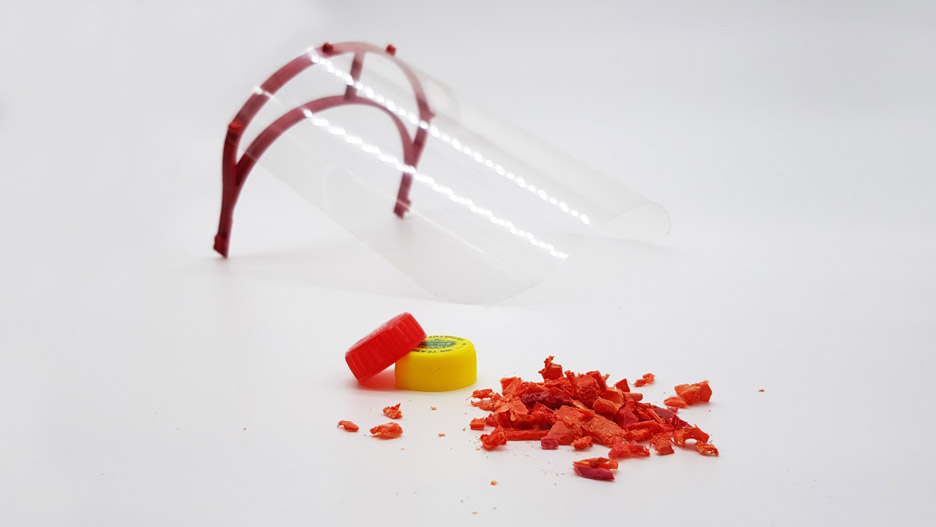The situation we are currently facing is undoubtedly a formidable challenge. The Coronavirus has changed and will significantly change many of our daily habits which we had considered “normal” and spontaneous up until now. We will have to learn to live with a virus which, on the one hand, threatens our health while, on the other, pushes us to search for immediate and concrete solutions in order to react.
In fact, it’s difficult situations which stimulate creativity and ingenuity. Thanks to recycling as well.
This is what’s happening in different parts of the world where the emergency has become a source of useful ideas and innovations to protect ourselves from contagion at such a critical time; a situation which we are probably need to learn to live with in the long run. In our latest article, we have gathered together some of the most original projects for fighting Covid-19 by recycling plastic.
In the Buddhist temple of Chak Daeng, near Bangkok in Thailand, the monks have started producing masks against Coronavirus made of recycled plastic. The country is one of the worst hit in South East Asia: the number of people infected by Covid-19 is rapidly rising. For this reason, no doubt, and as a result of the difficulty in sourcing protective equipment, the monks of Chak Daeng, who have always been very focused on sustainable activities by collecting tons of recycled plastic to produce clothing, have start producing protective masks using synthetic fibres extracted from plastic waste combined with cotton. Buddhist good luck prayers are also engraved on the surface of the masks.
A small, but excellent example of how recycled materials can help the planet and our health.
Paige Balcom, a Berkeley University student and an Ugandan environmental activist, Peter Okwoko have set up Takataka Plastics, a company which recycles plastic waste to produce building materials at affordable prices. In response to Covid-19, the two young entrepreneurs have started producing face shields for the health workers of Gulu (Uganda). They are genuine recycled-plastic shields which provide extra protection to the health workers, an instrument which is all the more important if you consider that the hospitals in the area are in serious difficulty and most health workers – as the people behind the project stated – do not have any personal protective equipment. It took three days to produce the first prototype of a face shield in recycled plastic, which was then tested successfully by hospital staff. The used plastic comes from household waste which is often dumped in landfills or burnt due to the lack of specific local legislations. The founders of the project have, therefore, started a small plastic and waste collection centre to produce cheap and useful products for the community such as tiles and floor and wall covering, as well as the protective face shields. The goal is to expand the project with a twofold purpose: to create jobs in the local community and produce an increasing number of recycled products whilst safeguarding the health of the population and the environment.
The open-source machines of Precious Plastic are being used to recycle plastic waste and transform it into face shields, respirator masks and special handles for opening doors hands-free as a protection against the Coronavirus.
The products made from recycled plastic materials are already being successfully used in countries like Germany, Spain, Greece, Austria and Switzerland. In Gran Canaria, specifically, over 3.000 face shields have been produced for the government and hospital staff thanks to an injection moulding system which can produce personal protective equipment by recycled plastic. In Germany, these special machines have been used to produce 20,000 face shields in the Dresden area. These devices help to protect the wearers from infectious droplets and preserve the masks, helping to keep them dry. Although no official institution has approved such devices for medical use at this time, it is protective equipment that many hospitals are already using worldwide as additional defence, especially when facing serious lacks to find personal protective equipment.
Projects, which at a time like this, become incredibly important and teach us that we should never lose the courage and drive to find efficient solutions. This is what gives us the strength to carry on.
Change is possible, especially now.

